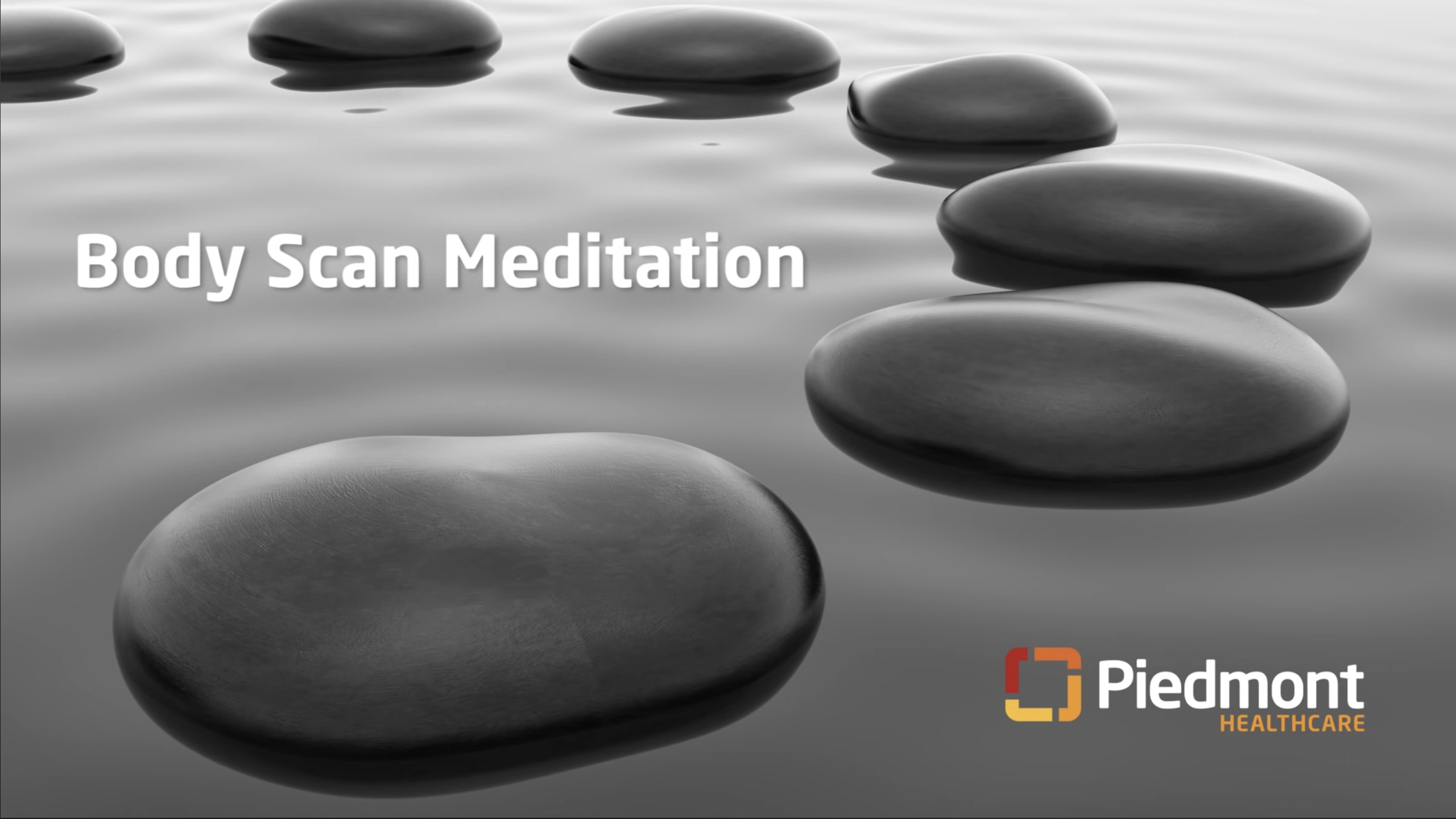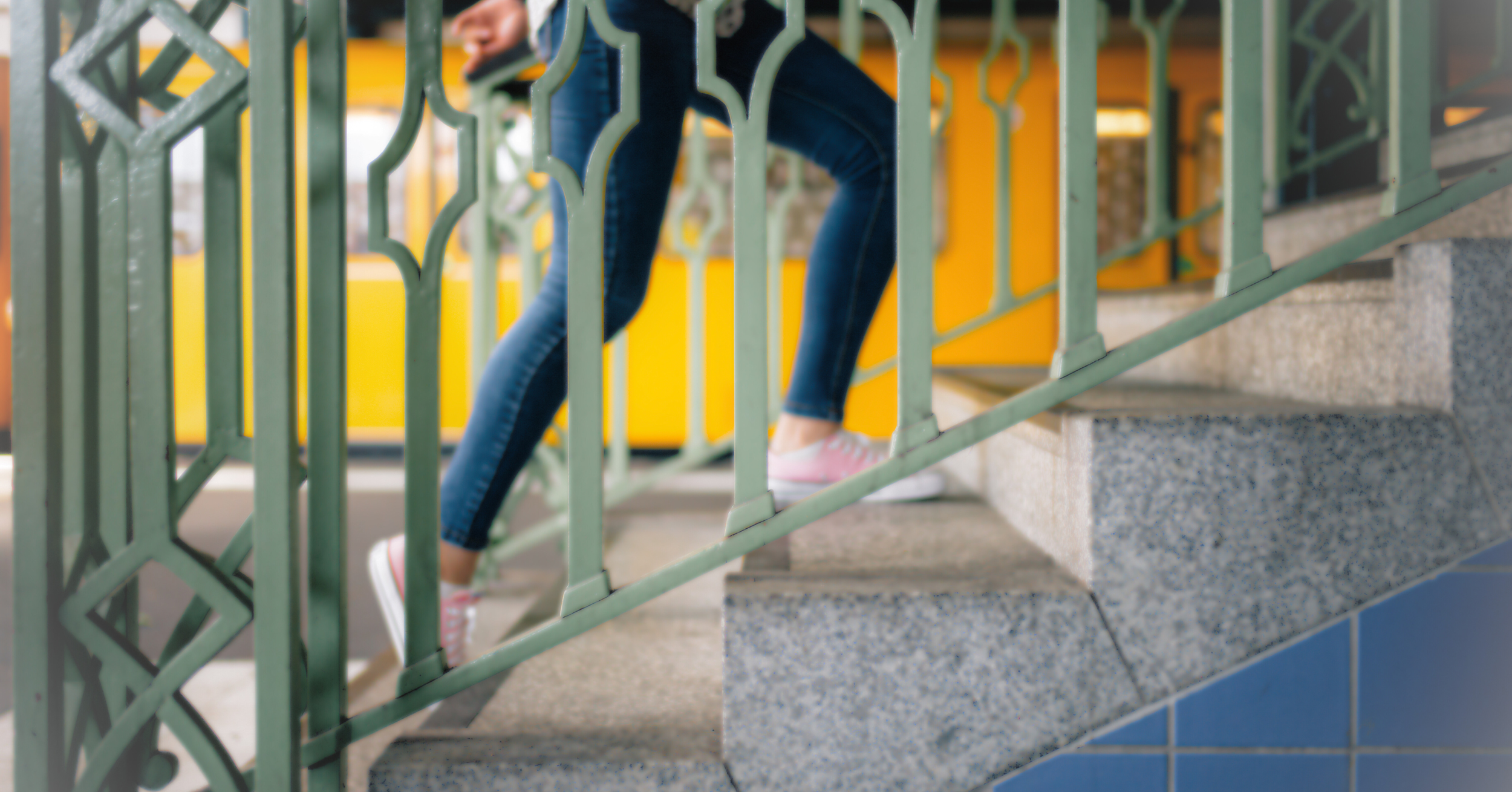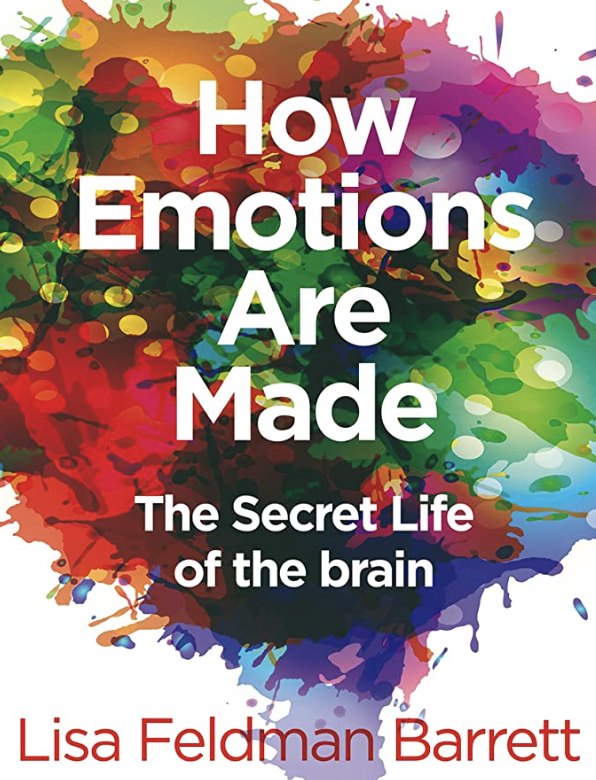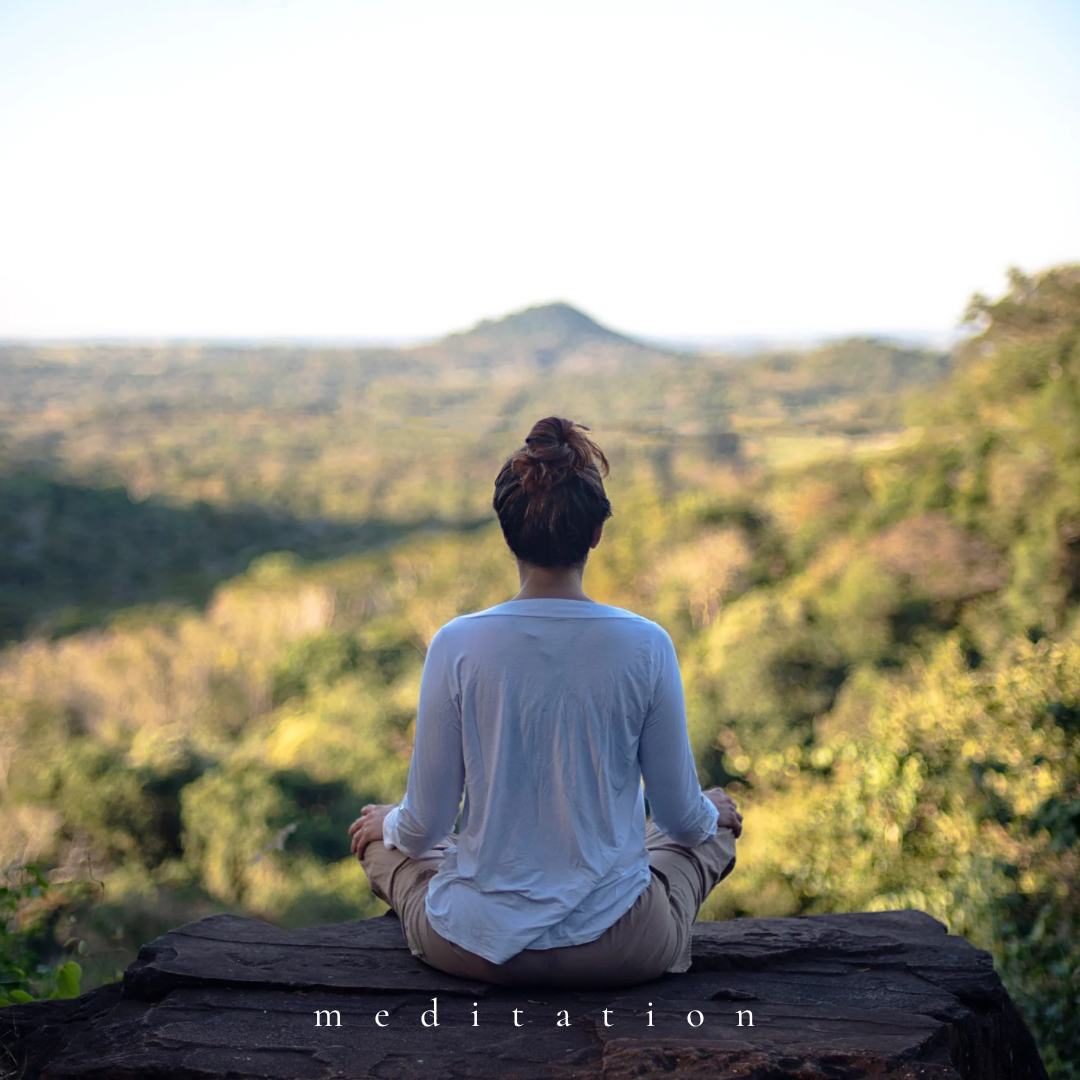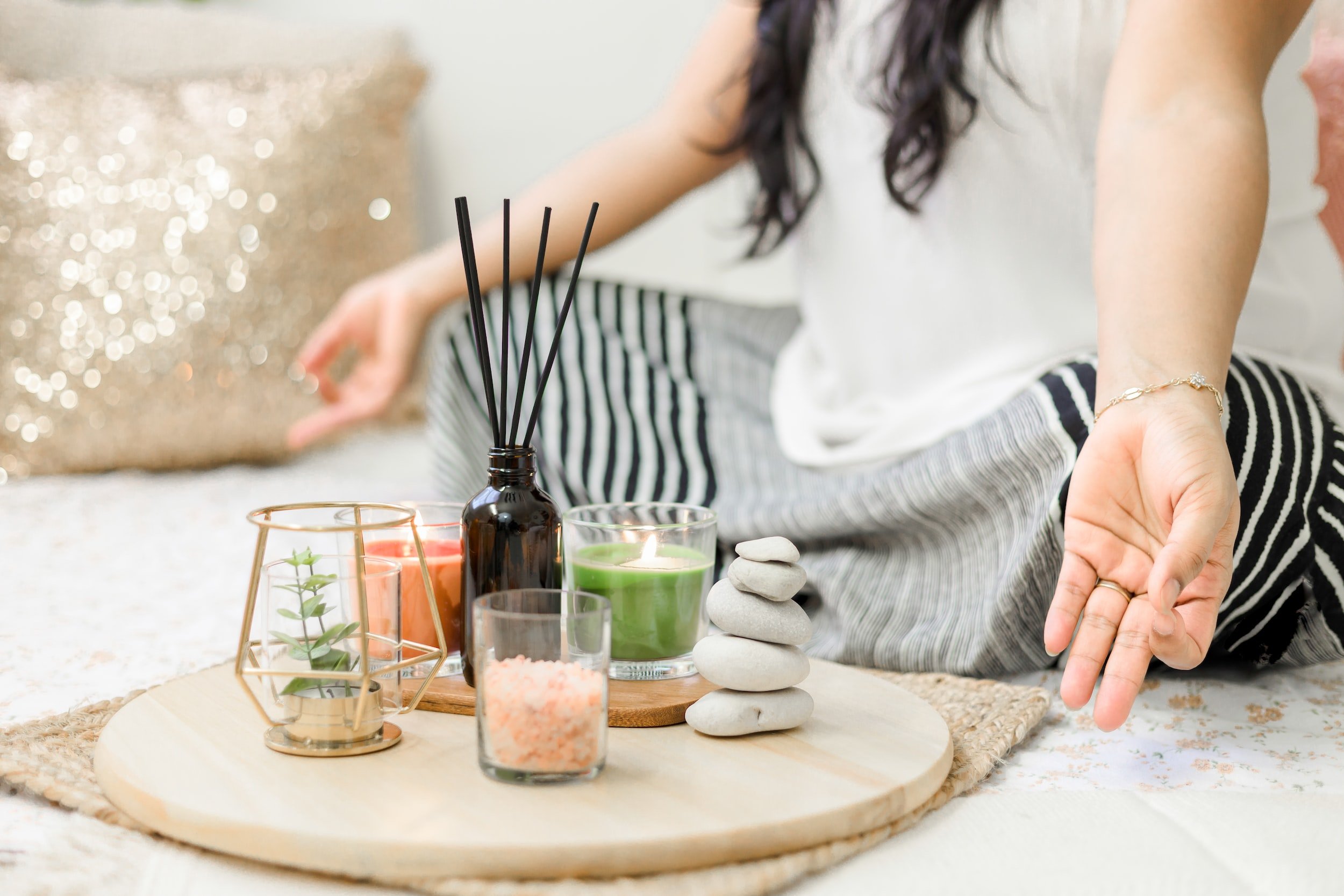Lately, I’ve noticed some increased visits to these blogs. If you find yourself returning often, welcome. I hope what you find here brings reflection rather than fixation and ads something meaningful to your day.
Maria Perez
TRUISMS INSPIRED BY THE WORK OF JENNY HOLZER
Lately, I’ve noticed some increased visits to these blogs. If you find yourself returning often, welcome. I hope what you find here brings reflection rather than fixation and ads something meaningful to your day.
Maria Perez
These are my truisms—written in 2016, fine-tuned in 2024, and inspired by Jenny Holzer. I was hesitant to share them. I posted them here once before in January, only to delete them in April. But ultimately, I’ve decided to bring them back to this blog. This came after a very revealing job/friendship came to an end.
Writing has always been therapeutic and healing for me. When I first wrote the original draft, I would read it every night. The truths within fueled my desire to move forward. It became a quiet ritual: a way to make space for myself in a loud world.
Some of these truths faded with time, softened by hope or lost in naivety. But the ones that stayed sharp helped guide me back to myself, and to those I love.
I don’t often share my writing nor I consider myself to be a writer, but tonight, I am sharing these thoughts, just in case something here lands where it’s needed.
The moment you understand that you are not better than anyone else is the moment real healing begins.
More often than not, people help others not out of kindness, but because of how it makes them look and feel. Don’t do that yourself.
Tokenism is NOT the same as diversity.
Image management is not the same as power or authenticity.
Gatekeeping is the death of society.
Being grateful doesn’t mean you owe your loyalty to someone else’s ego.
People will always want to be the main (and only) character—even in your own story.
Don’t look for support where you can’t find it.
Exercise.
Eat healthy.
There is something insidiously sad about being loved without being seen.
Call your parents once a week, at least.
People fall apart.
Privilege clouds judgement.
Education and curiosity allow understanding and social mobility. It doesn’t need erasing—it needs fixing.
Social media is a mask.
Often, the most charismatic people are the most dangerous and inauthentic you'll ever meet. Believe in what you KNOW about them, not what is said.
Keep most realities to yourself.
In adulthood, politeness, power, and money often matter more than the truth.
…BUT unfortunately… Speaking truths without living them tends to sell better.
If you feel you need to dim your light, chances are you’re in the wrong crowd.
Money is absolutely necessary—and more than okay to want—but it’s not the only measure of success.
Stay away from those who diminish your power out of fear of your potential—even if they seem kind or even generous. It’s not real.
There are “I care about you” statements that are nothing more than love bombing—the biggest trap of a narcissist.
Being with the wrong people affects your health, mood, finances, career, and spirit. Choose wisely.
People don’t really care about anyone’s real issues.
People don’t tolerate real vulnerability—it’s a mirror they don’t want to face.
Don’t be 100% honest about what you think. Some people might use your truth to manipulate.
Help people, then let go. Protect your energy.
The world doesn’t owe you shit.
Stay silently true to yourself.
Some people hurt you so they can keep their proximity to power.
“The norm” or “socially accepted” does not always mean fair, real, or trustworthy.
Keep faith that by understanding this without judgement, things will get better, and you’ll see your family and friends again.
Contrary to popular belief, the spiritual and the scientific go hand in hand.
Say what’s polite, but silently—and relentlessly—fight for what’s real.
True kindness respects boundaries. When innocence becomes a mask for control, it’s no longer virtue - it’s the purest form of selfishness and manipulation.
We cannot be God, that would be arrogant. But aiming to leave in act of goodness while preserving character - is within reach.
#truisms #hardtruths #life
Unlocking Wellness: The Impact of Body Scan Meditation on Stress Reduction and Healing
You will notice body scanning is a pretty common call in practices like Mindfulness Based Stress Reduction, Mindfulness Based Cognitive Therapy and some forms of yoga. The intention is to release tension and also help us anchor ourselves so we can feel more grounded and ultimately, open up a space for relaxed awareness. Researchers found that mindfulness training has multiple biological effects on emotional and physical health, can be effectively implemented in the workplace, and can impact psychological and emotional health during stressful situations.
Lately, I’ve noticed some increased visits to these blogs. If you find yourself returning often, welcome. I hope what you find here brings reflection rather than fixation and ads something meaningful to your day.
Maria Perez
At its core, the body scan is a sojourn into the intricate symphony of the mind-body connection, an invitation to witness the harmonious interplay of our thoughts and physical sensations.
It serves as a poignant reminder that our bodies are not mere vessels, but dynamic landscapes deserving of reverence and exploration.
You will notice body scanning is a pretty common call in practices like Mindfulness Based Stress Reduction, Mindfulness Based Cognitive Therapy and some forms of yoga. The intention is to release tension and also help us anchor ourselves so we can feel more grounded and ultimately, open up a space for relaxed awareness.
During the past 2 weeks we have been practicing meditations by Piedmont Healthcare. The first meditation had an interesting mix of diaphragmatic breathing, anchoring and body scan. I wrote a little bit about my experience with that on my last blog: The Truth About Meditation.
This week, the meditation was just a body scan followed by 10 minutes of silence meditation. I wanted to offer a reflection about what’s behind this type of practice, and why it might be good to integrate it more body scanning into our private practice.
BODY SCANNING AND MINDFULNESS: A PATH TO STRESS REDUCTION AND WELL-BEING
Body scanning has a direct association with stress reduction. In some studies it has been proved that body scanning can help reduce inflammation, fatigue and insomnia. In general, mindfulness practices, overall, have demonstrated enhancements in adaptive body awareness, attention, and emotional regulation.
But don’t take my word for it. Take the word of an expert. Jon Kabat-Zinn explores the topic of Mindfulness extensively. Jon did his doctoral work in molecular biology at MIT, and he is the founder of the Mindfulness-Based Stress Reduction (MBSR) Clinic and the Center for Mindfulness in Medicine, Health Care, and Society, both currently operating as a part of UMassMemorial Health.
He has a study about mindfulness titled Mindfulness-Based Interventions in Context: Past, Present, and Future.
Part of the study debates whether mindfulness practices can influence the healing process in patients with psoriasis, a condition often exacerbated by psychological stress. The study involved 37 patients with moderate to severe psoriasis undergoing phototherapy, with one group practicing mindfulness during treatment. The meditators showed a fourfold increase in skin clearance compared to the non-meditators.
While the small sample size warrants further research, this finding suggests that mental activity may positively impact healing processes in specific diseases. The study also highlights the potential benefits of patient engagement in treatment. However, debates and criticisms in the field underscore the need for larger, well-designed studies to establish the effectiveness of mindfulness-based interventions in various medical and psychological conditions.
In any case, this portion of Dr. Kabat -Zinn’s work, is the first to show that meditation has a significant impact on immunological function and brain activation asymmetry in vivo (you gotta read the case to understand this part, it is linked here and above).
Researchers found that mindfulness training has multiple biological effects on emotional and physical health, can be effectively implemented in the workplace, and can impact psychological and emotional health during stressful situations.
A SYMPHONY OF RELEASE: UNRAVELING TENSION
Cambridge Meditation Group | September 8 2023 | Meditation: 20-minute meditation: Body scan
In the relentless cadence of modern life, with its ceaseless demands and relentless pace, tension weaves itself into the very fabric of our bodies.
COVID-19 was a harsh awakening experience for many of us. We had to listen to our minds when everything stopped, and we also had to listen to our bodies when we got sick.
Often, we carry day-to-day this tension within us, and its presence is only made apparent through the whispers of discomfort or the weight of fatigue. And even then, we just don’t listen to it.
These whispers are sometimes too quiet for us to hear without removing all distractions. That’s precisely when practices like meditation come in handy and gives us back some of the autonomy the current system takes away from us. It is precisely then when techniques like body scanning become very helpful.
Everyone’s meditation style/preferences are valid, I am not by any means implying this IS the only way to release tension or to heal. I believe any practice that doesn’t hurt others and takes us to a true place of awareness is the way to go.
However, for us who are interested in the benefits of secular meditation, there is something to be said about the therapeutic integration of body scanning in our day-to day life.
As a reflection and final recommendation I encourage you to talk about this technique with your mental health practitioner if you have one, perhaps its common used in mindfulness based cognitive theraphy, can shade some light about how to deal with a situation you might be experiencing now.
FINAL THOUGHTS
My goal when unpacking this topic is to awaken a reflection within you and to consider how much more we can learn about how our internal experience affects our physical health. The goal is to also tell you we can regain the good kind of control into our human experience, improving not only our physical health but also the quality of our time in this earth, and consequently the quality of our time with our loved ones.
As our attention moves through the landscape of our body, we are reminded that the richness and vitality of life reside in the here and now.
This practice anchors us in the beauty of the present, offering respite from the ceaseless striving and inviting us to savor the exquisite tapestry of each passing moment.
Below, 4 body scan meditations you can do to enhance your practice. We are the Cambridge Meditation Group and we meet every Friday at the Foundry Cambridge, located at 101 Rogers Street, Cambridge, MA, 02142.
We are a secular meditation group offering a space free from religious affiliations, roles and agenda. The community we create is the one we start when we leave the meditation room. The one that begins with our immediate environment at home, at work, and anywhere where our internal experience is shared with others. Feel free to register HERE for our free live meditations.
Much love,
Mari
Organizer, Cambridge Meditation Group
THE TRUTH ABOUT MEDITATION
The pursuit of relaxed awareness can help you recognize emotions, such as hope, that you've been suppressing or ignoring. Through mindful observation of your thoughts and feelings, you may become aware of unexpressed hopes and desires that have been pushed aside. The practice can provide insights into why you might be repressing hope or other emotions. This repression could be due to past experiences, societal conditioning, or a fear of disappointment, among other factors.
Lately, I’ve noticed some increased visits to these blogs. If you find yourself returning often, welcome. I hope what you find here brings reflection rather than fixation and ads something meaningful to your day.
Maria Perez
From the lens of a somewhat unrealistic positivism, meditation can be misunderstood or misinterpreted by some people. This perspective often sees meditation as a tool solely for achieving instant happiness, bliss, or the elimination of all discomfort.
Instead, meditation often involves learning to sit with the uncomfortable or challenging aspects of your inner experience. This aspect of meditation is essential for personal growth, self-awareness, and emotional resilience.
Yesterday I had a particular experience with practice that I wanted to share with you and that relates to this topic.
Cambridge Meditation Group | July 7 2023 | Meditation: Guided Meditation for Being Present and relieving Stress, The Mindful Movement
A LITTLE DISCLAIMER
I don't consider myself more unique or exceptional in my journey with life and meditation, but I aspire to initiate in others reading this an inner dialogue by sharing my experiences. This dialogue can help us collectively invest the time and effort required to cultivate habits that promote long-term well-being. Without this commitment, we may find ourselves giving up the practice out of demotivation and a sense of inadequacy—something I aim to prevent
WHERE IT ALL STARTS
I host a secular meditation session every Friday at the Foundry Cambridge, offering a space free from religious affiliations. In our busy lives, self-care often takes a backseat, making the need for an agenda-free place essential. The Cambridge Meditation Group welcomes you as you are, encouraging a sense of community that extends beyond our meetings, embracing individual experiences without rigid expectations or roles.
IN THE QUEST FOR RELAXED AWARENESS…
September 1, 2023 | Meditation: 30-minute meditation: Full meditation sequence
Each week, I reflect on our community, personal experiences, and loved ones' journeys. This informs my selection of secular meditations during our gatherings, with the goal of fostering individual healing and private practice, ultimately seeking relaxed awareness.
I recently introduced a holistic meditation sequence from Piedmont Healthcare, combining diaphragmatic breathing, spinal breathing, anchoring, and body scanning. Typically, we focus on one aspect per week. After six months of consistent meetings at the Foundry, this comprehensive approach felt fitting.
I rigorously explore these resources before sharing them with our group and practicing them privately. This week, the process remained the same, but the experience was uniquely impactful.
Over the past few years, I've faced personal challenges, including a significant career shift that reshaped my work-life perspective, the illness of close family members, my own battle with long-COVID, and the loss of cherished individuals. It's simply the ebb and flow of life.
What intrigues me is how our shared practice has revealed hidden issues I might not have discovered on my own. This group has provided the time and opportunities for such insights to surface. Below two uncomfortable realizations I experienced during our meditation practice this past Friday.
REPRESSED HOPE
"With every breath smooths away any tension in your face, hand or any areas of discomfort you might feel in your body (...) and begin to notice where your thoughts are going ..."
The instructor said...
The instructor's guidance took an unexpected turn. Instead of following along, my mind wandered to a memory seemingly out of place in my present life.
This memory stirred up a sense of repressed hope. After the memory settled and I attempted to refocus on the instructor's voice, I realized a distinct absence of daydreaming in my present. It was as if a touch of healthy cynicism had morphed into a protective shell of self-doubt when allowed to linger.
As it happens, it's quite common to confront an inner conflict between yearning for something positive, subconsciously attempting to regain control during meditation, and facing a fear that comes to the surface in the silence of the practice. In more Jungian terms: meditation allows us to face our shadow self.
I understand your own struggles and realizations might manifest differently from mine, but the shared inclination to seek a way back into meditation is itself a form of control worth noticing.
The truths that come to seemingly disrupt our practice are exactly what makes it stronger.
For me, trying to quickly regain focus on the instructor's voice was, in essence, a form of self-judgment and control. It's not that aiming for a state of relaxed awareness is wrong—it remains a valid goal in meditation practice. The key is ensuring that we don't deceive ourselves along the way.
This experience revealed my innate tendency to suppress hope, a defense mechanism against life's harsh realities. It dawned on me that I had been denying myself permission to daydream and explore very real possibilities in my daily life.
Now, I aspire to view this reaction as a gentle reminder instead of something that exerts control over me. It serves as a nudge to strive for more and cultivate greater appreciation. While it was unsettling and physically uncomfortable, I share this fragment of my experience in the hope that others won't abandon their meditation practice simply because they don't feel like the Dalai Lama after just 30 minutes of meditation.
The void of distraction, another form of control
Once I eventually released that memory and the accompanying realization, I began to follow the breathing cues and enjoyed the physical advantages of mindful breathing
"Perhaps you even see the breath as something like a thick and milky white string, if you see the subtle string that's fine but if you don't see it that's also fine. Your experience is your own". She said…
As I progressed, despite feeling more relaxed, I began sensing tension in areas of my body where I hadn't previously noticed I was carrying stress. The feeling accompanying the physical sensations was one of vulnerability. While this could be viewed as a somewhat unsettling distraction, I found it somewhat easier to overcome.
In the end, the experience it offered a glimpse of relaxed awareness—a state characterized by a calm and attentive consciousness, where the mind remains alert and observant, enabling a clear and focused presence in the present moment.
What I mean is that it wasn't particularly enjoyable to realize the source of that seemingly ‘physical’ tension and its connection to non-physical actions I needed to take in my waking life. Nevertheless, it served as yet another lesson within the realm of discomfort, providing a more relatable explanation for the significance of the breathing aspect in meditation.
Final Thoughts...
It's been 24 hours since my third attempt at this meditation, and I can't say I feel all that better. What I do know is that as long as I heed those moments of awareness in my daily life and continue my practice, things will be alright. Not in the form of a magic fix, but in the sense that I'll become better equipped to face various challenges as time goes on.
I suppose that's the message I want to convey about meditation—it won't always be easy. However, the absence of constant relaxation doesn't diminish its capacity to help soothe your nervous system, lead to realizations pertinent to your unique situation, or promote a healthier life. It's simply a reflection of life itself, and an integral part of the journey.
I look forward to seeing you every Friday at 5 pm at The Foundry Cambridge until November 17, 2023. Come as you are and experience the benefits of secular meditation with us. As we approach winter 2023 and spring 2024, we'll return to our 5:30 pm schedule, marking a wonderful one-year anniversary of our shared meditative journey. Remember, admission is 100% free. Here is our registration link.
Thank you for reading about my experiences, and thank you for being a part of our community.
should I meditate when angry, sad or stressed? how?
Meditation can be a useful tool for managing anger, as it can help you calm down and gain perspective on the situation. However, whether or not you should meditate when angry depends on the individual and the situation. In some cases, meditation may not be the best option when you're feeling angry, especially if your anger is intense and you're struggling to control your emotions. It may be best to wait until you've calmed down before attempting the practice.
Lately, I’ve noticed some increased visits to these blogs. If you find yourself returning often, welcome. I hope what you find here brings reflection rather than fixation and ads something meaningful to your day.
Maria Perez
Meditation can be a useful tool for managing anger, as it can help you calm down and gain perspective on the situation. However, whether or not you should meditate when angry depends on the individual and the situation. In some cases, meditation may not be the best option when you're feeling angry, especially if your anger is intense and you're struggling to control your emotions. It may be best to wait until you've calmed down before attempting the practice.
BUT HOW DO I DO THAT?
It happened to me last week. I received pretty upsetting news on top of a pretty mentally stressful week at work. I have seen how many people just decide to move on or keep busy and that’s ok. At the end of the day, you have to be in line with your conviction and do what works best for you and if that’s your happy place, by all means go there when you need to. For me, what works is facing the emotion first, other actions like trying to find the silver lining or showing only hopeful emotion, feels phony and in a way like I am just putting a band-aid on a deeper issue that actually requires immediate attention or release so I can make sure it is fully tackled. Regardless of your approach, just make sure it is truly serving you and your loved ones equaly, preferable with the hep of a professional if that’s whats needed. Sometimes we make mistakes too or perhaps our approach is not the best and that’s something to remember because its part of our humanity and that’s ok.
In any case, the mindset centered around emotional release can be perceived as the opposite of someone who loves practices like meditation or yoga, especially because there is a general perception about praising only positive emotions, so we feel like failing when we show our true colors, or the colors the situation calls for! The reality is: such perception is nothing more than that: perception. It is also not realistic, it is a very one-dimensional way of existing, and it is not sustainable.
How Emotions Are Made: The Secret Life of the Brain" by Lisa Feldman Barrett challenges the idea that emotions are innate and universal responses to stimuli. Instead, Barrett argues that emotions are constructed by the brain based on past experiences, context, culture, and personal beliefs, and are embodied throughout the entire body.
Personally, maybe 10-15 yrs ago I would choose to go over my physical and mental boundaries as a way to exist, sacrifice, right? very honorable in our society. In the present day, truly taking the personal seriously and make it more of a priority, just like work was/still is is where I prefer to be. That realization made me think about anger/stress and how it relates to the every-day life of someone who is interested in personal growth through meditation.
for the level-headed human … DON’T NEGLECT BREATHING
If you naturally lean towards a more quiet and level-headed approach, breathing can be key before entering the meditation practice when stressed. Mobile apps like Headspace have incredible resources you can use to manage your breathing before going to your meditation center. They have a 5-minute long Breathing Into Stress session that is quite wonderful. In case you don’t have the app yet, below is another option (…and no, I don’t do any sponsorships, I recommend what I read and believe only, so this is another personal recommendation)
The great thing about breathing is: we do it all the time, so we don’t have a special set up to make it happen. If you can’t use Youtube or Headspace, you can simply try a popular practice a friend of mine introduce me to: Breathe for a count of 4, hold for a count of 4 and then release for a count of 4 again. Repeat until you find a safe place to anchor yourself and move on.
Deep breathing is an effective technique for calming anger because it helps to regulate the body's nervous system. When we're angry, our bodies go into fight or flight mode, which can cause physical and emotional tension. Deep breathing can help to activate the parasympathetic nervous system, which is responsible for the body's rest and relaxation response. This relaxation response can help to reduce the intensity of anger/stress, and make it easier to manage our emotions. Deep breathing also helps to increase oxygen flow in the body, which can reduce stress and anxiety.
By taking slow, deep breaths, we can focus our attention on the present moment and become more aware of our thoughts and feelings. This mindfulness can help us to recognize and accept our emotions, without getting overwhelmed by them.
EFFECTS OF BREATHING ACCORDING TO EXPERTS
What I write encompasses personal experience, and research based on your questions during sessions or online. When looking for info, I like discovering the expert opinion of people with different life experiences and points of views. Below, a little study about the effects of diaphragmatic breathing from the faculty of Psychology at the Beijing Normal University.
This study investigated the effect of diaphragmatic breathing on cognitive function, affect, and cortisol responses to stress. Forty participants were randomly assigned to either a breathing intervention group (BIG) or a control group (CG). The BIG received intensive training for 20 sessions over eight weeks, while the CG did not. The study found that diaphragmatic breathing led to a significant decrease in negative affect and increased sustained attention in the BIG group compared to the CG. The BIG also showed a significantly lower cortisol level after training, while the CG showed no significant change in cortisol levels. The study provides evidence for the potential benefits of diaphragmatic breathing in improving mental function and has important implications for health promotion in healthy individuals. Participants were recruited from an IT company in Beijing, China and were screened for physical health problems and mind-body training experience.
As you can see, a practice that sometimes feels too ethereal, can have components proven to be scientific based! I think that’s beautiful, so on that note, I would love it if you send me things you read sometimes so I can share it on the platform. The idea is we can all learn together.
FAN OF EMOTIONAL RELEASE? THERE IS AN OPTION FOR YOU TOO
If on the contrary you are more like me, (a fan of confrontational therapy over CBT), releasing the anger or stress might be the right thing to do. You need to be mindful to what type of practice you choose, before entering meditation if breathing is not the one for you.
Arthur Janov was a California psychotherapist variously called a messiah and a mountebank for his development of primal scream therapy — a treatment he maintained could cure ailments from depression and alcoholism to ulcers, epilepsy and asthma. It is important to note primal theraphy is not so popular anymore, his studies are from the 60’s-70’s so take in consideration the societal landscape and belief system back then. It is also said, this type of therapy has been criticized by many in the mental health field for its lack of scientific evidence and potential for harm if not conducted properly. Arthur said neurosis is caused by repressed pain of childhood trauma so releasing it with a basic reaction to emotion could be part of the solution.
While all of this could be true for some, screaming as a form of release goes beyond primal theraphy and its effect could very well benefit people equipped to take it. This is the moment were I have to remind you: I am not a mental health professional, if you are thinking about ANY type of meditation or mental health practice, you should seek the help of a professional. I am not liable or responsible.
In any case, scream teraphy is also popular in other cultures. To give you an example an university in Sweden recently adopted a tradition where students are encouraged to scream every night at 10 pm. They call this the flogsta scream in honor to the neighborhood where it started. Supposedly, this has helped tremendously with academic stress and we all know the happy index of nordic and scandinavian countries…. just saying they appear to have it a little more together than most when it comes to balancing mental health while keeping humble, healthy and financially stable… so interesting read.
Simply put, endorphins are activated when screaming and they interact with receptors in the brain that produces a positive feeling in the body. Very simple. Now, there are other ways that might be less taxing like running, talking to someone you trust and of course: breathing.
The thing is, screaming (if done properly) can help you detach from the situation you are facing and producing stress so you can enter a space of silence on a better note. I found this website call Flow where the author expands their research about scream meditation. I will include on on the Two Things I Read Today series but I thought the subject was pretty interesting. More information about the flogsta scream can be found here at the wonderful website Atlas Obscura
THE THIRD OPTION… MAYBE JUST…MEDITATE
I get it, how can I be upset and then go meditate? Why am I not a walking budha? Well, because you are human and the entirety of your experience contributes to your growth in a way or another, even the most uncomfortable moments. So if you're able to acknowledge and accept your anger, and you feel like you're in a state of mind where you can focus and concentrate, then going right into meditation might be the right answer. You can try mindfulness meditation (we have done it a couple of sessions with body scans to deal with anxiety, stress and distractions). These type of meditation involves paying attention to your thoughts and emotions without judgment, and allowing them to pass by without reacting to them. This can help you gain insight into your anger and sadness and develop more control over your emotional reactions.It is up to you to decide if you want to meditate when you're upset. It's important to listen to your body and mind, and to choose the techniques that work best for you.
It is important to note we need to be flexible with ourselves too. Our needs and tolerance change over time and depending on the situation so accepting that without judgement is precisely what meditation is all about. There will be times when something completely different from what you are used to is what is going to feel (and probably be) appropriate. This IS normal and part of the human experience.
If Mindfulness Makes You Uncomfortable, It’s Working
“While mindfulness can lead us to experience the good things in life more fully, this only tells half of the mindfulness story. In fact, becoming truly mindful and aware means that we are also able to see, name, and more fully experience things when we are angry, sad, jealous, anxious, vulnerable, or lonely — this, too, is mindfulness” - Amy Jen Su
To close this very long post that took me a while to write, I want to leave you with this very insightful HBR article that taps into the uncomfortable. The author of the article argues that mindfulness should not be equated with "good feeling" emotions, such as joy and relaxation, but with the capacity to sit with the full spectrum of emotions, including the negative ones, and to learn to be less reactive. She offers two stories about leaders, Randy and Natalie, to illustrate the connection between mindfulness and making better leadership choices. One of them explains how after practicing meditation she was actually feeling less relaxed. Randy and Natalie both cultivated mindfulness by observing themselves in action, tracking their patterns, noticing, naming, and pausing before reacting. I hope you like this read as much as I did and again, feel free to join the conversation and send me things you read and I would like to share with the community!
We are the Cambridge Meditation Group and we meet every Friday at The Foundry Cambridge from 5:15-6:00 pm for secular meditations. You can get in touch by calling me at 617.840.3711, via IG @cambridgemeditationgroup or email at maria@cambridgemeditationgroup.com.
The Foundry is located at 101 Rogers Street, Cambridge, MA, 02142 and our registration link for Friday meditations can be found here
Have a great meditation session :)
Much love,
Mari
2 things you can do to Enhance Your Meditation Practice
Shame and pride are complex feelings that can result from a variety of things, including our accomplishments and the methods we used to get there. Although it's normal to feel pleased of our successes, we could also feel ashamed or guilty about the strategies we employed to get there. Let’s talk about why this happens and how to face this reality, and let’s learn how to boost our meditation practice from a place of compassion tours our experience.
Lately, I’ve noticed some increased visits to these blogs. If you find yourself returning often, welcome. I hope what you find here brings reflection rather than fixation and ads something meaningful to your day.
Maria Perez
Shame and pride are complex feelings that can result from a variety of things, including our accomplishments and the methods we used to get there. Although it's normal to feel pleased of our successes, we could also feel ashamed or guilty about the strategies we employed to get there. Let’s talk about why this happens and how to face this reality, and let’s learn how to boost our meditation practice from a place of compassion tours our experience.
(Note the general idea/mindset applies wether you meditate or not).
One study published in the Journal of Personality and Social Psychology found that people tend to feel more proud of their successes than the process leading up to them, because outcomes are more concrete and observable than the steps taken to get to where they wanted to be. I would also dare to say we feel shame because maybe that process looked clumsy, and also because it was not linear or straightforward as we were told, as we were expected to deliver, or as we imagined.
ACCEPT THERE MIGHT BE RESISTANCE
In any case, I think the first thing we can consider before embarking in a new main habit or dramatic change, is accepting that the path to a goal can and will probably be uncomfortable, however “uncomfortable” doesn’t have to be a cue for quitting it.
When starting your meditation practice for example, we know there might be some resistance, I would like to ask you to sit on that, reflect and think in your particular experience how does that resistance look like? How can I understand that resistance from a place of acceptance so I can move forward, put my shoes on and go…?
Once I have identified where the resistance lives, its cause and its effects at large, I get more knowledge about my relationship with my environment and I gain autonomy over my actions and outcomes. To give you a very silly example to keep this light: It took me years to go to an actual gym. For years I told myself it was about privacy and social anxiety. While some of it was true for a while, my main limitation there was feeling I was not in control of my time or representing myself well, if I had to invest more of it in commuting. In reality: the solution had nothing to do with my issues with privacy, I just needed to find a place near work with a locker and learn to be ok with taking care of myself if this was more attainable with my new routine and need. It means that to an extent, I favor convenience, and if I favored “convenience” maybe I was not being as much of a go getter? See? Negative association = shame. Also, none of it was real, I was simply not flexible to my routine and needs changing to better serve myself and my loved ones.
However, when I finally identified the real implication of this resistance and the line of thought that came with it, I realize how I was depraving myself of a healthy experience that actually fits my lifestyle, current needs, and helps me overcome my social anxiety and ultimately create this great community. Of course, this was not the ONLY thing that led me to what I appreciate but you get the point. At the end it was about embracing the messiness of a process with a more corrective and less judge mindset. That’s how I found the acceptance of my resistance.
Sometimes, the expectations and pressure we put into what are seemingly good behaviour/habits are big enough to leave us in perpetual state of doubt, procrastination or anxiety as a respond to how demanding they might be/feel. If you mind wonders like mine, the stress of day-to-day life can be enough to overwehlaem you. In that case, I can’t stress enough how important it is to take note of these thought patterns.
As you know, we are all learning here, and while I am using my experience as a way to explain the things I learn from the questions you have asked in the past two sessions, I can understand if these don’t resonate with you. For this reason, I want to leave you with a couple of concepts that might be useful to read if you are curious about how accepting our resistance can be similar to exercising self-efficacy which is a term commonly studied from anthropology to corporate psychology.
The study found that the positive subscales of self-compassion were positively associated with self-efficacy, while the negative subscales of self-compassion were negatively associated with self-efficacy. The findings suggest that clinical interventions that focus on cultivating self-compassion may help improve individuals' sense of self-efficacy.
The other one talks about how self-compassion increases self-improvement motivation. The author provides examples of how self-compassion can help individuals cope with stress and failure, and can encourage them to pursue their goals with greater persistence and determination. It is also suggested that self-compassion can help individuals adopt healthy habits and behaviors by reducing feelings of guilt, shame, and self-blame.
If in this case there is something that prevents you from meditating that doesn’t sink-in quite yet, it’s ok! Just allow yourself to ask the question and come up with a supporting a loving solution. Talking to another person and, hearing their own experience with the subject, or when trying something new, also helps a lot and can serve as a conductor of compassion and understanding.
TAKE IT INTO SMALLER BITES
Now onto the second tip: Making small and controlled incremental improvements precedes the acceptance of resistance. According to Halvorsen et al. (2011), the key to successfully incorporating meditation into your daily routine is to create habits that break down the world into little pieces. Each habit or thought modification should be small and manageable but impactful enough to create a sense of accomplishment. It's about focusing on one piece of the puzzle at a time and allowing those pieces to come together in the overall picture of a healthy you.
One of the most important habits is simply showing up to your meditation practice. By prioritizing this time in your schedule, you can create a habit of consistency that will make it easier to stick with the practice. Even if you only have a few minutes to spare, taking the time to focus on your breath and connect with your inner self can be hugely beneficial.
Depending on where the resistance comes from, you can create a plan of small actions you can take to correct the urge of complying with the resistance. We are not short of silly personal examples today, so I’ll have to resort to this again: in recent conversations with my therapist, I remember a very simple advice he gave me when I was dealing with long-covid and I felt very exhausted and sad and short of patience about it. I came to the session with a feeling of defeat finding very difficult to relate to other people and my job when on top of my general anxiety, I was also dealing with feeling physically weak due to this infection.
First, we were tapping on the importance of exercise, which at the moment I found particularly annoying given the fact I was also in a boot for 9 weeks due to a sesamoid fracture. I proceeded to complain about that too and linked the feeling with the fact I was not very fond of my social life in the United States either. Then he just looked at me and said: action precedes motivation.
Slowly this comment sunk -in and I simply told myself I needed to complete one goal only a day: showing up to the gym. I was not thinking about how and for how long. I only showed up. This happened for months, until the next challenge became establishing a routine. In the meantime, motivation to complete other projects such as this meditation group, started to happen: action preceded motivation.
Let's create little habits together! Join our meditation group for a journey of self-exploration and spiritual growth. Register HERE for Friday secular meditation every Friday from 5:15 pm to 6:00 pm at the Foundry, Cambridge.
#LittleHabitsBigImpact #MeditationTips #DailyDiscipline #MeditationJourney
Much Love,
Mari
TWO THINGS I READ TODAY: HOW TO BREATHE AND SIT WHEN MEDITATING
IS THERE A WRONG WAY TO BREATHE DURING MEDITATION?
While focusing on the breath can be a useful technique for many people, it is not the only way to meditate. This article explores some of the potential benefits of different breathing techniques, such as deep breathing or alternate nostril breathing.Discover useful insights and practical guidance for exploring different breathing techniques and finding what works best for you.
Lately, I’ve noticed some increased visits to these blogs. If you find yourself returning often, welcome. I hope what you find here brings reflection rather than fixation and ads something meaningful to your day.
Maria Perez
Welcome to my little weekly series “2 things I read today” where I’ll be sharing articles, information and studies that can help your meditation practice. I hope you enjoy them and I hope they can result in an useful selection of content for your own journey.
These two articles are from Headspace, a digital health platform that provides guided meditation and mindfulness exercises to help users reduce stress, improve focus, and enhance overall well-being. I am a big fan of their programs and meditations, and in a way they inspire this meditation group too. During my COVID infection, I used their materials to maintain control of my anxiety and also to help my breathing patterns.
Is there a wrong way to breathe during meditation?
While focusing on the breath can be a useful technique for many people, it is not the only way to meditate. This article explores some of the potential benefits of different breathing techniques, such as deep breathing or alternate nostril breathing.Discover useful insights and practical guidance for exploring different breathing techniques and finding what works best for you.
Can I meditate lying down?
This article provides some guidance on how to meditate lying down effectively, such as by propping up the head and neck to prevent discomfort and keeping the eyes open to maintain focus. Excited about starting your meditation journey? Let us be your ally! Follow our journey in instagram at @cambridgemeditationgroup
Much love,
Mari 🩵
THE EFFECTS OF GROUP MEDITATION IN Social disconnectedness & Perceived isolation
THE EFFECTS OF GROUP MEDITATION IN SOCIAL DISCONNECTEDNESS & PERCEIVED ISOLATION
In today's world, we are constantly bombarded with technology, compartmentalizing our activities, and exposed to distractions, and noise, often forgetting about the importance of connecting with ourselves and others without judgement.
Meditation is one practice that can help us reach a more understanding place, and correct me if I am wrong but I think we are all in need of that in our current world.
Lately, I’ve noticed some increased visits to these blogs. If you find yourself returning often, welcome. I hope what you find here brings reflection rather than fixation and ads something meaningful to your day.
Maria Perez
In today's world, we are constantly bombarded with technology, compartmentalizing our activities, and exposed to distractions, and noise, often forgetting about the importance of connecting with ourselves and others without judgement.
Meditation is one practice that can help us reach a more understanding place, and correct me if I am wrong but I think we are all in need of that in our current world.
To give you an example, this article from the medical journal The Lancet Public Health, reports on a longitudinal study that aimed to investigate the relationship between social disconnectedness, perceived isolation, and symptoms of depression and anxiety among older Americans. What caught my attention was the difference between the two forms of social isolation: social disconnectedness and perceived isolation.
Social disconnectedness can be characterized as a scarcity of contact with others. Perceived isolation, by contrast, reflects the subjective experience of a shortfall in one's network functioning and social resources. This perception could involve feelings of loneliness, of absence of support or a perceived inadequacy of intimacy in one's interpersonal relationships.
While social media for example, has kept us connected and yes, foster important movements of freedom and self-expression such as #metoo, the rise of these platforms have also been linked to a dramatic increase of depression and anxiety. In a way they have shaped the way we communicate with each other, and in consequence our social dynamic. The consequences extend beyond the platforms themselves and permeate our politics, work and they way we exist with the world.
Overall, the article sheds light on the important role that social connections play in our well-being and that is where practices like group meditations can be valuable tools for change and the reason we started the Cambridge Meditation Group to begin with.
GROUP MEDITATION, A PATH TO EMPHATIC CONNECTION AND SOCIAL CHANGE…
By simply observing our thoughts, we can open up the possibility of seeing beyond our immediate surroundings and developing a sense of empathy that can have a ripple effect in our life as a community, and in a more personal level, allows us to let go of our attachments and focus on what truly matters.
That is why I started the Cambridge Meditation group, to foster an environment of support on our journeys of self-discovery, to transcend words and loudness. Why not share our challenges and celebrate our successes with each other?
There is one particular study I would love you to read later, you can find the link here, but long story short, from 2007 to 2011, researchers started keeping track of 1,725 people who meditated every day. During those five years, something amazing happened. The statistics showed that stress-related incidents in the US as a whole had gone down by a large amount, even though only about 1% of the people meditated together.
Photo courtesy of The New Yorker, “Group meditation curbs stress, whether you do it or not: study”, Brooke Kate, December 29, 2022
If you wish to give it a try and register for our free Friday Meditation Group, please use the link below. Remember the space is being facilitated for these sessions and the meditations are NOT affiliated with any ideology or religion. Can't wait to see you there!
If you want to learn more about meditation, I invite you to follow my blog series title “TWO THINGS I READ TODAY…” Our first article taps on different ways to breathe during meditation and the best posses to get the best our of your meditation session. I hope this information is as useful to you as it is for me. Can’t wait to see you at the Foundry
Much love,
Mari 🩵
FOLLOW OUR JOURNEY… @CAMBRIDGEMEDITATIONGROUP IN INSTAGRAM
DISCLAIMER
These group meditation series are meant to relax and connect, not replace medical or mental health treatment. Before initiating any new wellness or meditation practices, participants should consult with their health providers. Session organizers are not liable for any injuries, damages, or losses resulting from participation.
The Science of Meditation: Exploring Research from MIT and Harvard
Lately, I’ve noticed some increased visits to these blogs. If you find yourself returning often, welcome. I hope what you find here brings reflection rather than fixation and ads something meaningful to your day.
Maria Perez
In recent years, meditation has gained widespread attention, largely due to numerous scientific studies demonstrating its various benefits. Among these studies are groundbreaking research conducted at esteemed institutions like the Massachusetts Institute of Technology (MIT) and Harvard University. This article will delve deeper into the findings from meditation studies at these institutions and present the results, providing insights into the various benefits of different meditation techniques.
1. Mindfulness Meditation: Effects on Attention and Emotional Regulation
A notable study from MIT demonstrated the impact of mindfulness meditation on attention and emotional regulation. The team, led by senior author John Gabrieli, discovered that people who participated in an eight-week mindfulness meditation program had increased brain connectivity, particularly between the regions associated with attention and executive control. These findings suggest that regular mindfulness meditation practice can improve focus and control over one's emotions.
Source: https://news.mit.edu/2011/meditation-0505
2. The Impact of Mindfulness on Depression
Researchers at Harvard Medical School conducted a study examining the effects of mindfulness meditation on individuals suffering from depression. Participants who followed an eight-week mindfulness program exhibited structural changes in their brains, showing increased grey matter density in the hippocampus and decreased grey matter density in the amygdala. These findings point to the potential of mindfulness meditation to not only alleviate depressive symptoms but also induce changes in the brain's structure, regulating emotional responses.
Source: https://news.harvard.edu/gazette/story/2018/04/harvard-researchers-study-how-mindfulness-may-change-the-brain-in-depressed-patients/
3. Loving-Kindness Meditation: Enhancing Compassion and Altruism
Anither study conducted at Harvard Medical School, explored the effects of loving-kindness meditation on compassion and altruistic behavior. The researchers found that participants in the loving-kindness meditation group showed significant increases in daily compassionate acts and positive interpersonal encounters compared to the control group. This demonstrates the potential of loving-kindness meditation in cultivating compassionate attitudes and promoting prosocial behaviors.
Source: https://www.frontiersin.org/articles/10.3389/fpsyg.2018.01993/full
4. The Benefits of Yoga and Meditation on Stress and Well-being
Finally, in another study conducted at Massachusetts General Hospital and Harvard Medical School, researchers examined the effects of mindfulness-based stress reduction (MBSR) combined with yoga on stress reduction and overall well-being. Participants who underwent an eight-week MBSR program exhibited lower stress levels, increased psychological well-being, and improved quality of life. These findings reveal the potential of incorporating meditation and yoga in stress management and well-being promotion.
Source: https://journals.plos.org/plosone/article?id=10.1371/journal.pone.0209564
Research conducted at prestigious institutions highlight the various benefits of different meditation techniques, from improving attention and emotional regulation to reducing stress and promoting prosocial behaviors. As meditation becomes more integrated into mainstream culture, the scientific evidence supporting its myriad benefits continues to grow. By understanding these research findings, individuals can make informed decisions about incorporating meditation practice into their daily lives for improved mental and emotional well-being.
BENEFITS OF secular meditation
BENEFITS OF SECULAR MEDITATION
Meditation is a simple yet powerful technique that has been practiced for thousands of years. It involves focusing your attention and calming your mind, which can help reduce stress, improve concentration, and promote overall well-being. Meditation doesn't have to be religious or spiritual, it can be secular and is suitable for anyone regardless of their beliefs.
Lately, I’ve noticed some increased visits to these blogs. If you find yourself returning often, welcome. I hope what you find here brings reflection rather than fixation and ads something meaningful to your day.
Maria Perez
In the fast-paced world we live in, taking time to recharge is crucial to our well-being. With our busy lives, it's easy to get caught up in the hustle and bustle of daily life, leaving little time for self-care. That's why incorporating meditation into our routines can be a game-changer.
Meditation is a simple yet powerful technique that has been practiced for thousands of years. It involves focusing your attention and calming your mind, which can help reduce stress, improve concentration, and promote overall well-being. Meditation doesn't have to be religious or spiritual, it can be secular and is suitable for anyone regardless of their beliefs.
Here are some benefits of secular meditation that you can enjoy:
Reduces Stress: Stress is a part of life, but too much of it can lead to burnout, anxiety, and other health issues. Meditation can help you reduce stress by calming your mind and promoting relaxation.
Boosts Immunity: Stress can take a toll on your immune system, making you more susceptible to illnesses. By reducing stress through meditation, you can boost your immune system and protect yourself against sickness.
Improves Sleep: Many people struggle with getting enough sleep, which can impact their physical and mental health. Meditation can help you fall asleep faster and improve the quality of your sleep, leaving you feeling refreshed and energized.
Enhances Focus: With so many distractions in our modern world, it's easy to lose focus. Meditation can help you improve your concentration and focus, allowing you to be more productive and efficient.
Promotes Gratitude: Meditation can also help you develop a sense of gratitude and appreciation for the things in your life. By taking time to reflect and focus on the present moment, you can cultivate a sense of gratitude and contentment.
In addition to these benefits, meditation can also help you develop a deeper sense of self-awareness and improve your overall sense of well-being. By taking just a few minutes each day to meditate, you can improve your mental and physical health and feel more balanced and centered.
So, let's take a collective self-care moment and practice some secular meditation. Let's be grateful for the wonderful community we have in Massachusetts and the opportunities we have to take care of ourselves.
Remember, you don't need any special equipment or experience to start meditating. All you need is a quiet space and a few minutes of your time. Start small and work your way up, and you'll soon reap the benefits of this powerful practice.
If you're looking for a way to incorporate meditation into your routine, we have some exciting news for you. From April 14 to May 26, I will be hosting free meditation sessions at the Foundry’s dance studio every Wednesday from 5:30 pm to 6:15 pm. The address is 101 Rogers Street, Cambridge, MA, 02143.
These sessions are open to anyone, regardless of your experience level or background. Whether you're new to meditation or a seasoned practitioner, these sessions offer a space to come together as a community and focus on our collective well-being.
By attending these sessions, you'll have the opportunity toconnect with others in the community, and experience the benefits of meditation firsthand. And the best part? It's completely free.
So, if you're interested in taking a step towards self-care and well-being, we invite you to join us at The Foundry. Come as you are, and let's meditate together.
Regards,
Maria Perez
#MeditationSessions #FreeMeditation #TheFoundry #Community #SelfCare #Wellbeing #Massachusetts #MeditationTechniques #ExperienceMeditation #MeditationBenefits #SecularMeditation #ReduceStress #BoostImmunity #ImproveSleep #EnhanceFocus #PromoteGratitude #SelfCare #Massachusetts #Community #Wellbeing







